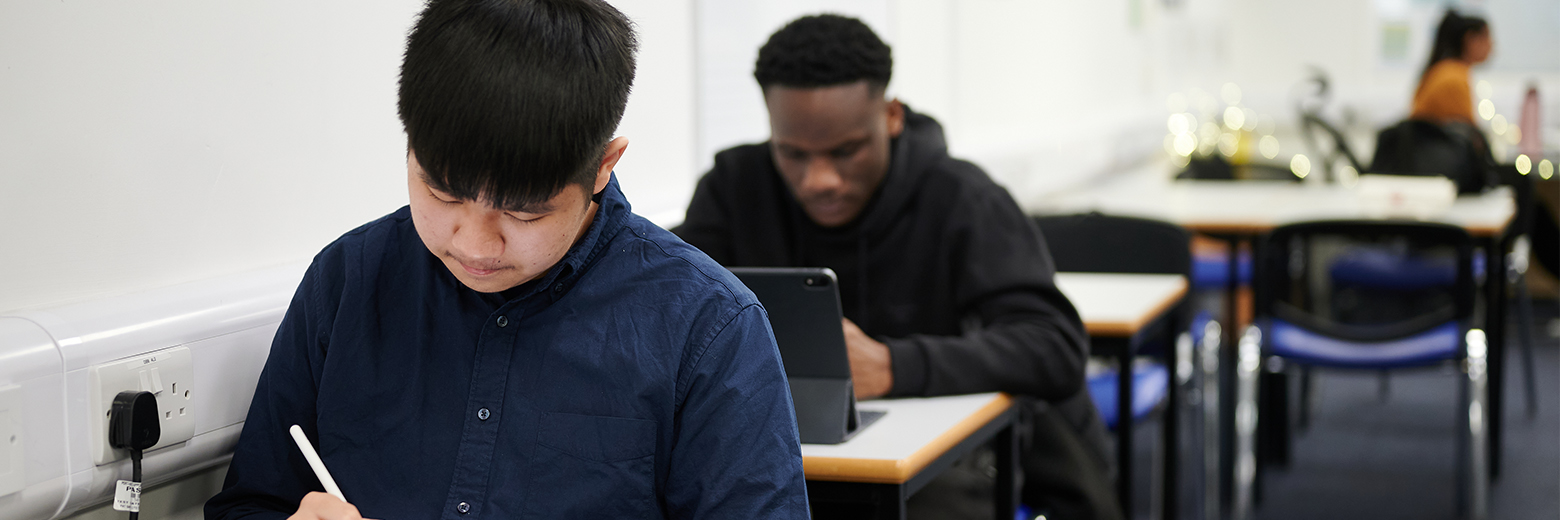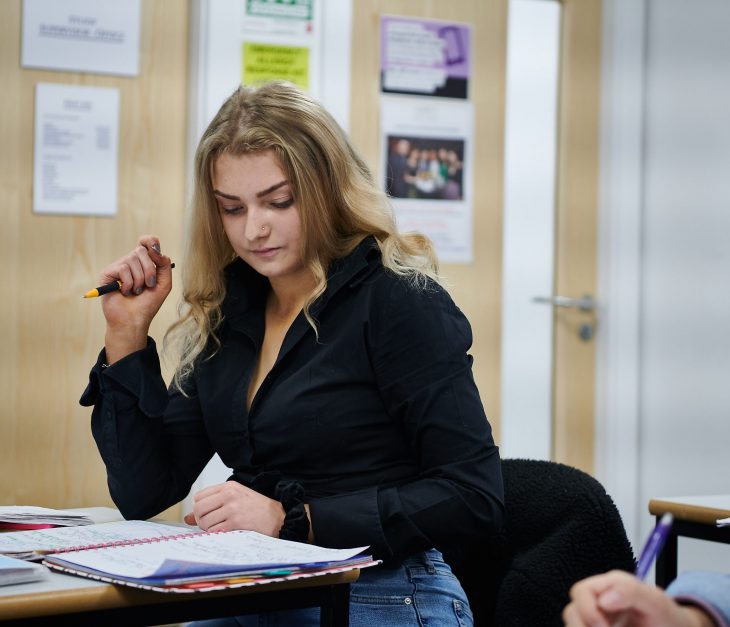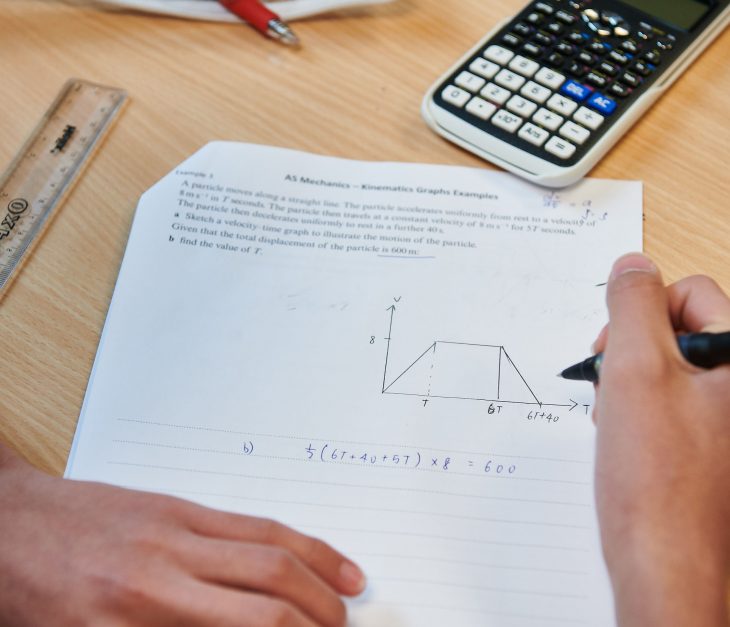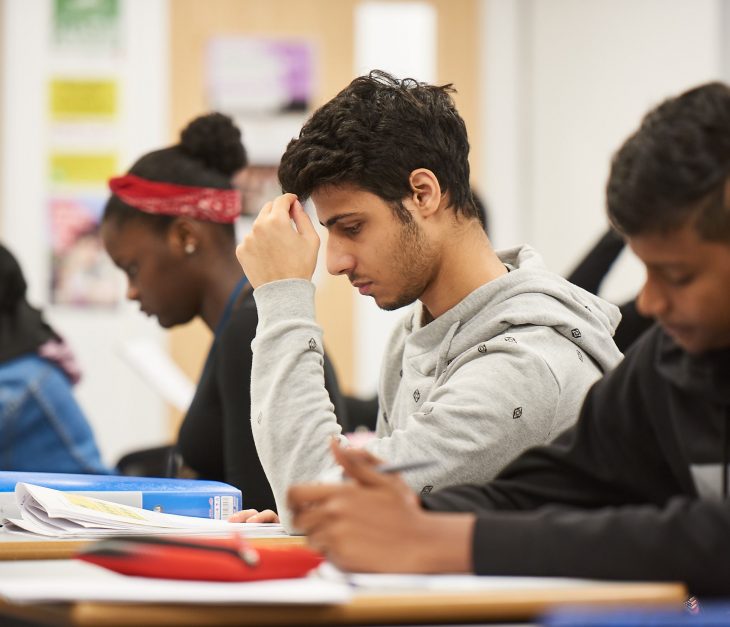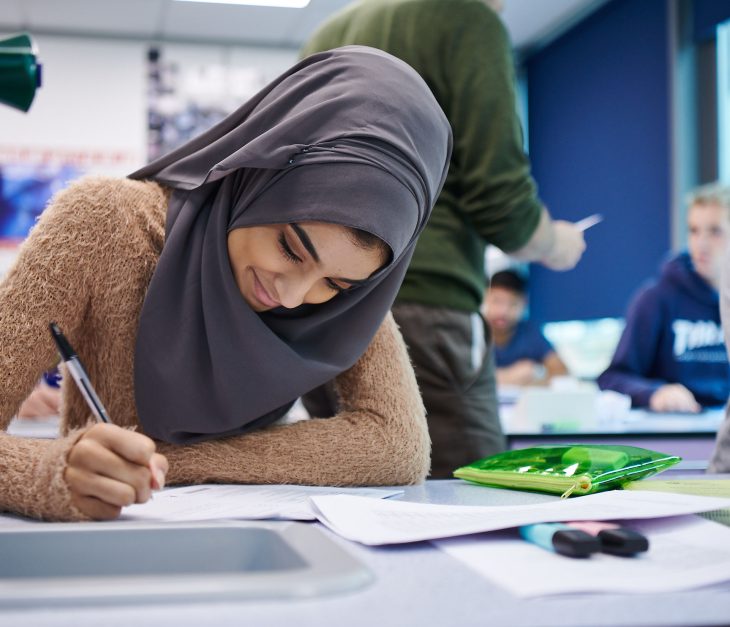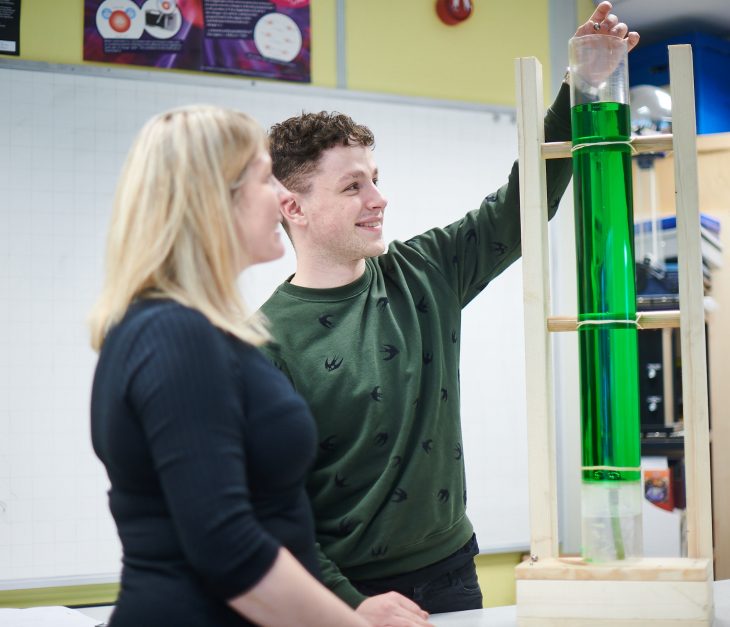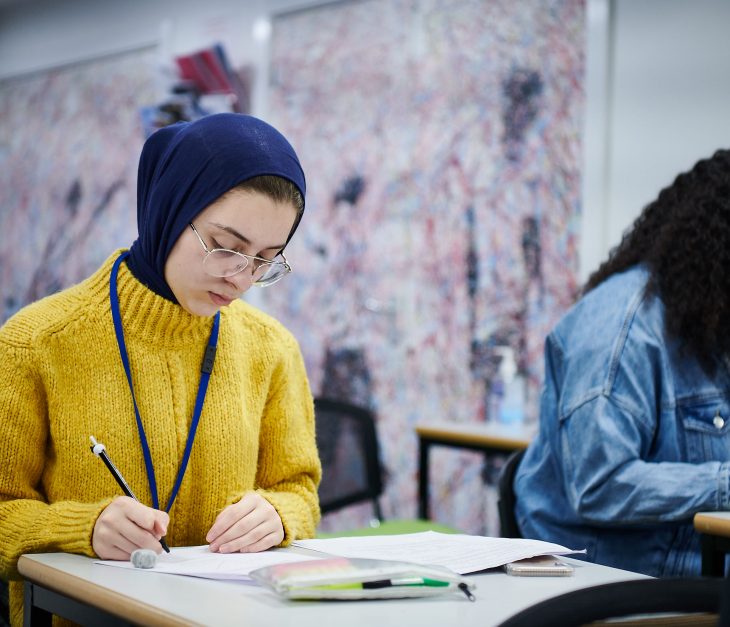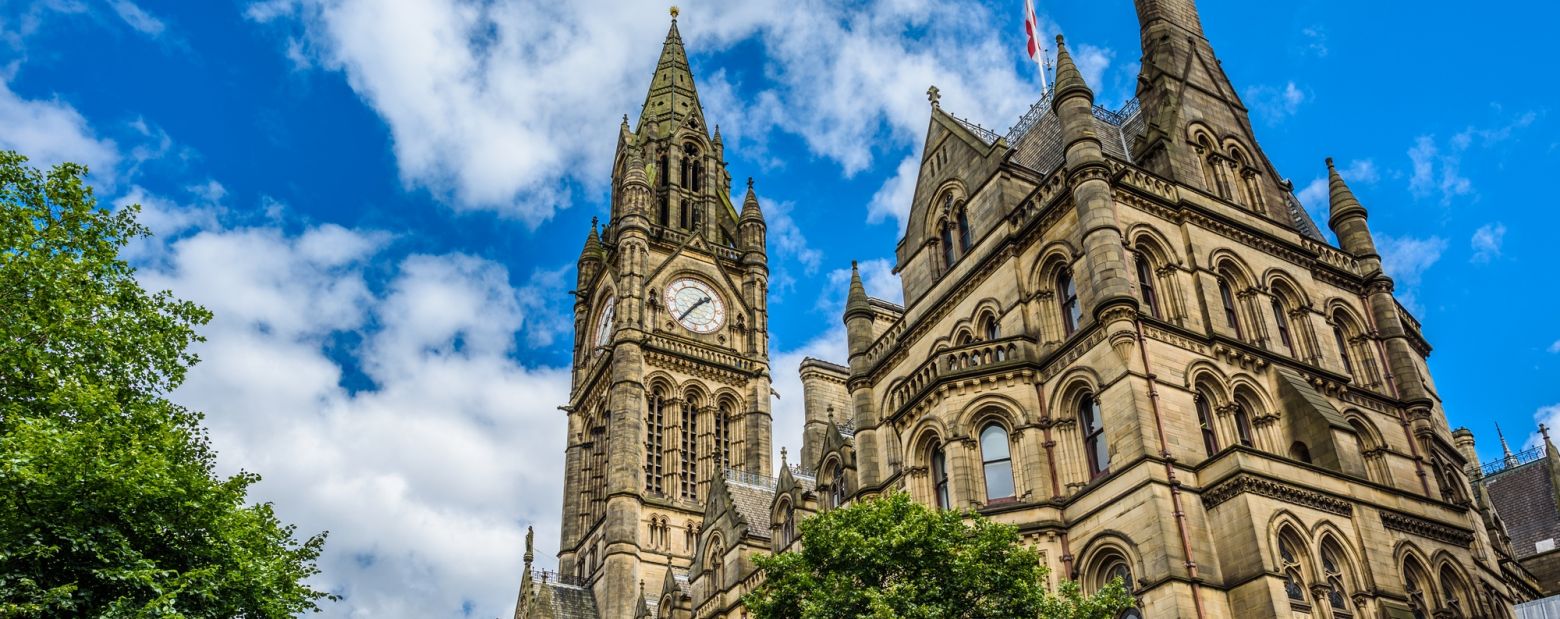A-Levels
A wide range of A-Level courses covering science, mathematics, arts, humanities and business are available. Normally students will take three A-Level subjects across the 2 year programme, although in exceptional cases it is possible for four subjects to be studied.
If you have studied the first year of A-Levels at a different school and wish to join us for the second year, we will give our best advice about how to go about this. Sometimes you might need to transfer examination boards. This is usually a straightforward task and we can advise you further on this matter. The college has experience in successfully enabling students’ transition into the upper sixth year.


